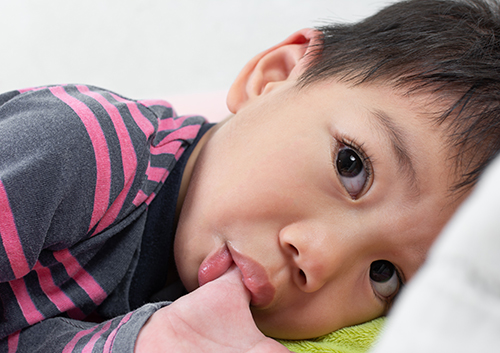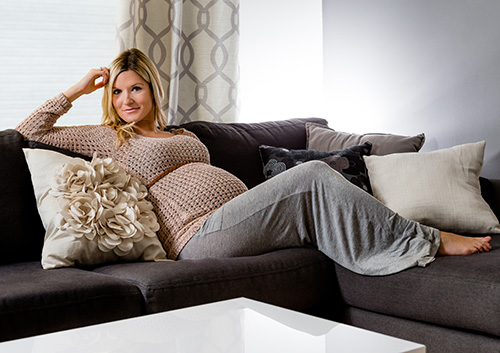Thumb Sucking
December 28th, 2022

Learning to suck their thumbs is one of the first physical skills babies acquire. In fact, ultrasound images have revealed babies sucking their thumbs in the womb! Babies have a natural sucking reflex, and this activity is a normal way for your baby to soothe herself.
If your toddler still turns to her thumb for comfort, no need to worry. Most children give up this habit as they grow, and generally stop completely between the ages of two and four. But what of the child who doesn’t? Should you encourage your child to stop? And when?
When Thumb Sucking Becomes a Problem
After your child turns five, and certainly when her permanent teeth start to arrive, aggressive thumb sucking is something to watch for. This type of vigorous sucking, which puts pressure on the teeth and gums, can lead to a number of problems.
- Open Bite
Our bites are considered normal when the upper teeth slightly overlap the lower where they touch in the front of the mouth. But with aggressive thumb sucking, teeth are pushed out of alignment. Sometimes this results in a condition called “open bite,” where the upper and lower teeth don’t make contact at all. An open bite almost always requires orthodontic treatment.
- Jaw Problems
Your child’s palate and jaw are still growing. Aggressive thumb sucking can actually change the shape of the palate and jaw, and even affect facial structure. Again, orthodontic treatment can help, but prevention is always the better option!
- Speech Difficulties
Prolonged thumb sucking has been suggested as a risk factor for speech disorders such as lisping, the inability to pronounce certain letters, or tongue thrusting.
The consequences from aggressive thumb sucking can be prevented with early intervention. What to do if you are worried?
Talk to Us
First, let us reassure you that most children stop thumb sucking on their own, and with no negative dental effects at all. But if your child is still aggressively sucking her thumb once her permanent teeth have started erupting, or if we see changes in her baby teeth, let’s talk about solutions during an appointment at our Los Gatos, CA office. We can offer suggestions to help your child break the habit at home. There are also dental appliances available that can discourage thumb sucking if your child finds it especially hard to stop.
Work with your Child
- Be Positive
Positive reinforcement is always best. Praise her when she remembers not to suck her thumb. Make a chart with stickers to reward every thumb-free day. Pick out a favorite book to read or activity you can share.
- Identify Triggers
Children associate thumb sucking with comfort and security. If your child turns to her thumb when she’s anxious, try to discover what is bothering her and how to reassure her. If she automatically sucks her thumb when she is bored, find an activity that will engage her. If she’s hungry, offer a healthy snack.
- Talk about It!
Depending on her age, it might help your child to understand why stopping this habit is important. We are happy to explain, in a positive, age-appropriate way, just how breaking the thumb sucking habit will help her teeth and her smile.
Again, most children leave thumb sucking behind naturally and easily. But if what is a comfort for your child has become a concern for you, please give us a call. Dr. Werner will work with you and your child to prevent future orthodontic problems and begin her lifetime of beautiful smiles.




 Website Powered by Sesame 24-7™
Website Powered by Sesame 24-7™